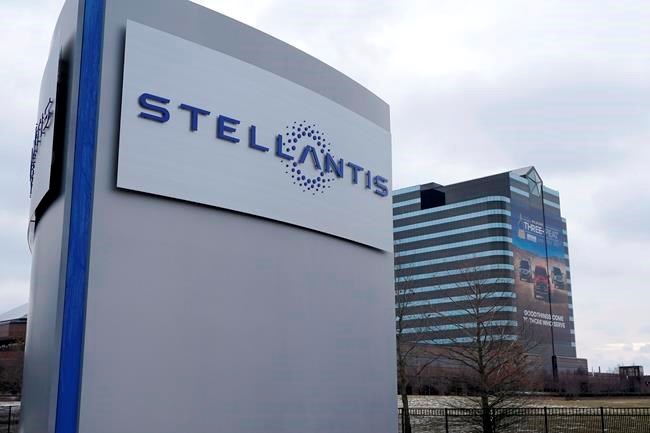MILAN — Stellantis CEO Carlos Tavares on Wednesday said the new car company formed from the merger of Fiat Chrysler Automobiles and PSA Peugeot would be a “disruptive” force in the industry, and that both sides would provide technologies to achieve the promised 5 billion euros ($6 billion) in cost savings each year.
The Italian-American carmaker and the French mass-market automotive company completed their merger on Jan. 16, creating Stellantis, the world’s fourth-largest carmaker, despite a pandemic year that saw profits plunge.
“Stellantis is not born from a crisis,’’ Tavares told a conference call after fourth-quarter earnings were released. “This is not only about implementing synergies, it will also be a disruptive plan. We do not accept to be cornered as a legacy carmaker.”
Tavares cited the recent investment in the Archer aviation company to develop vertical flying devices for urban mobility as an example of how Stellantis intended to be a disruptive force.
“We believe that this strategic investment is going to be highly convergent with the technology we need for the automobile world,’’ he said, citing energy management, lightweight batteries and quick-charging technologies.
“We are not going to let ourselves be cornered as dinosaurs, that is clear,’’ Tavares said.
Tavares also indicated that both FCA and PSA would contribute technologies that would help the company get rid of duplications and save money. He cited bigger engines from FCA, and smaller ones from Fiat, and said that PSA has been adept at achieving efficiencies through sharing components and platforms, while FCA has faster processes.
“So if I combine both, I should go fast and I should be very efficient at the end of the day,” the CEO said.
Offering its first financial guidance, Stellantis announced it was targeting an adjusted income margin of between 5.5% and 7% in its first year of operation as a new company.
Tavares said one “strong caveat” to the guidance is that they cannot anticipate if there will be lockdowns or restrictions on business due to the pandemic.
While strong North American performance is expected to help Stellantis meet the goal, Tavares said “three big gorillas’’ were providing headwinds: rising costs of raw materials, potential production losses due to a shortage of semiconductors and increased costs for electrification.
Earlier Wednesday, Fiat Chrysler Automobiles and PSA Peugeot reported their last financial statements as independent companies, each contributing full-year profits of around 2 billion euros to the new company.
Fiat Chrysler reported adjusted net profits in the pandemic year of 1.9 billion euros ($2.3 billion), down 57% from 2019. PSA reported earnings of 2.2 billion euros, a drop of 32%.
Fiat Chrysler reported fourth-quarter adjusted earnings before interest and taxes of 2.3 billion euros, a record 2.2 billion euros of those generated in North America, where the profit margin was 11.6%.
As a result, about 43,000 employees represented by the United Auto Workers union will each get $8,010 profit-sharing checks on March 15, Stellantis said in a separate release. Last year the workers got $7,820, and the average hourly worker has received over $44,700 in profit sharing since 2009, Stellantis said.
All regions and Maserati made a positive contribution to the results, for the first time since the first quarter of 2019, said Mike Manley, the former FCA CEO and current head of North American operations for Stellantis.
The French mass carmaker said second-half operating margins hit 9.4% at record levels.
“These figures demonstrate the financial soundness of Stellantis, bringing together two healthy companies,’’ Tavares said in a statement.
___
AP Business Writer Tom Krisher contributed from Detroit.
Colleen Barry, The Associated Press


